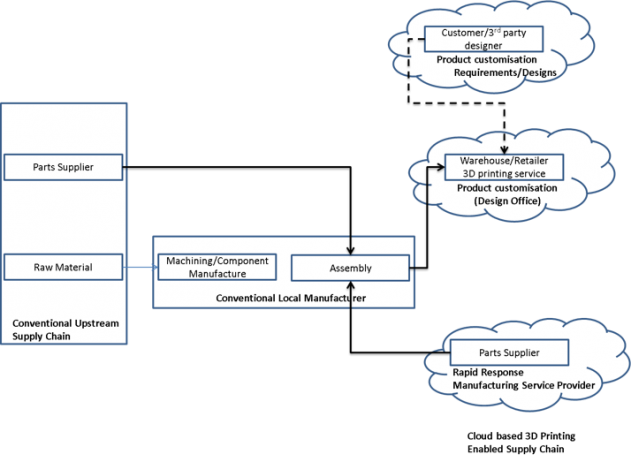Organising Production Technology Into Most Responsive States - 3D Print Machine Enabled Networks
Overview
This project by way of contrast is seeking to examine the possibility of integrating 3D printing [and more broadly additive manufacturing] with conventional production environments, exploiting the ability of 3D printing to provide a rapid response customisation capability to supplement existing facilities and in particular to underpin spares and repair services which are often at odds with mainstream production.
Academic impact
- Opportunities and limitations of 3D Printing to enhance conventional manufacturing and integrated spares and repairs and late customisation
- Establishment of parameter limits for achieving successful re-distributed manufacturing network based around 3rd party 3D Printing services.
- Examination of the feasibility of cloud based manufacturing control for a multi location manufacturing operations.
More broadly this work will add to the ongoing debate about lean vs resilient manufacturing and how emerging technologies can support both capabilities.
Conceptual Design of OPTIMOS PRIME demonstration environment

Hypothesis
The emergence of contract 3D- printing firms locally will enable traditional manufacturing organisations to be resilient and responsive due to interventions owing to late customisation, spares and repairs requests and small batch orders.
Objectives
- To develop a simple control architecture that integrates multiple production sites including 3D printing systems.
- To develop a demonstration system that explores the feasibility of effectively integrating conventional and 3D Printing to support late customisation, spares and repairs requests and small batch orders.
- To develop an approach for assessing the potential for using a mixed convention / 3rd party 3D Printing approach for different industrial conditions.
Principal Investigator
Researchers









